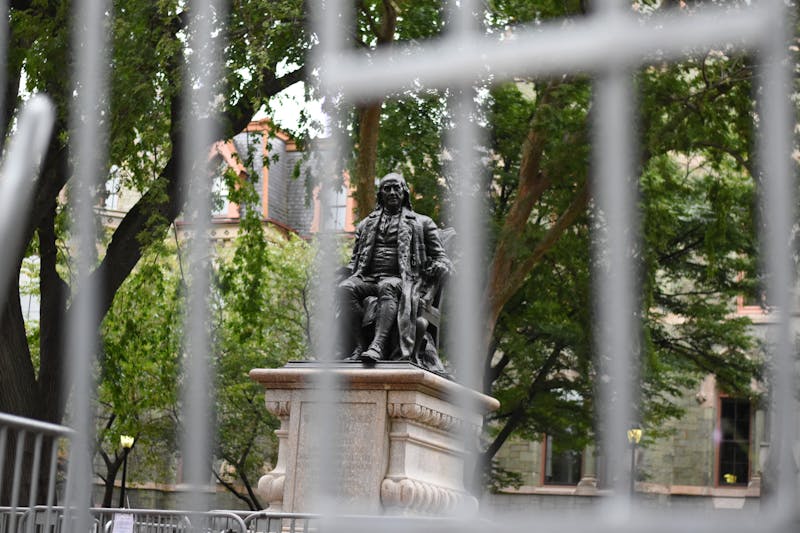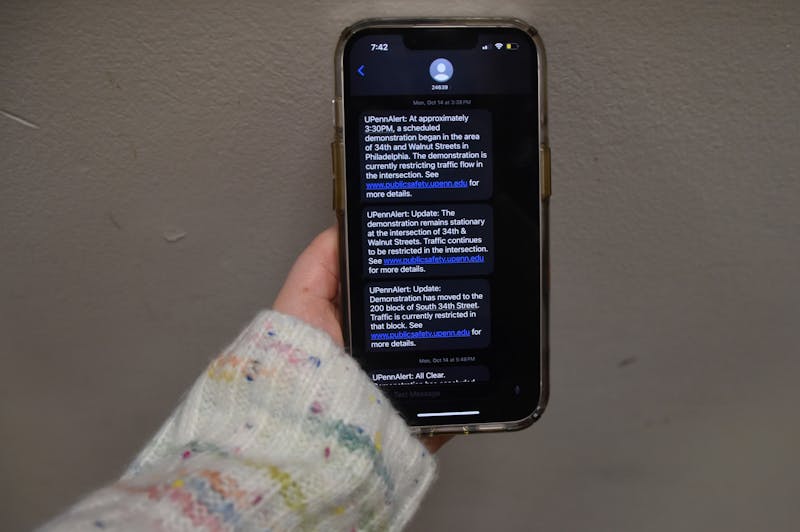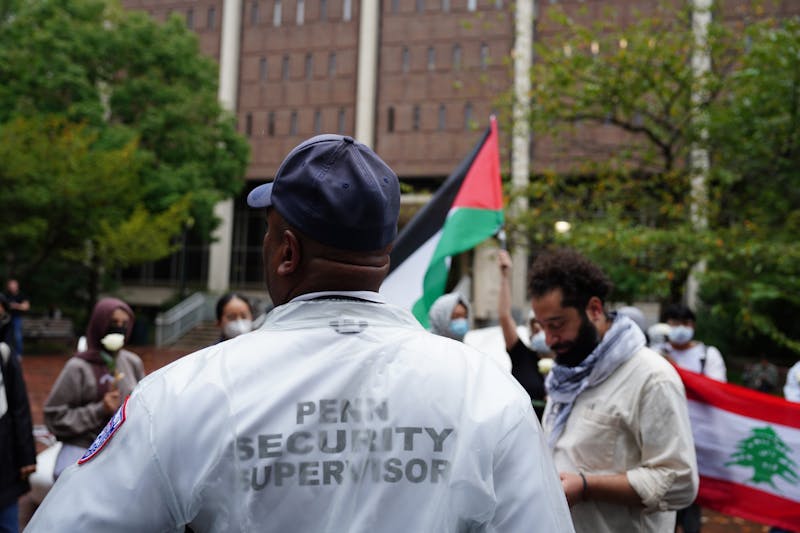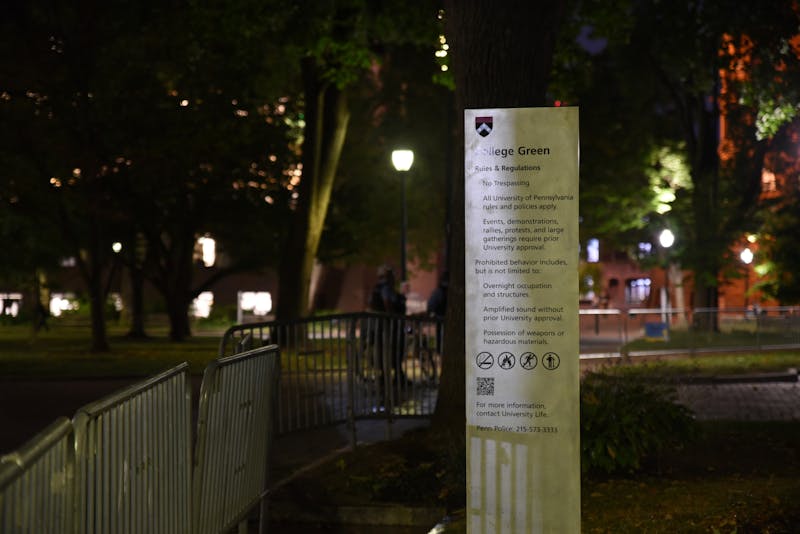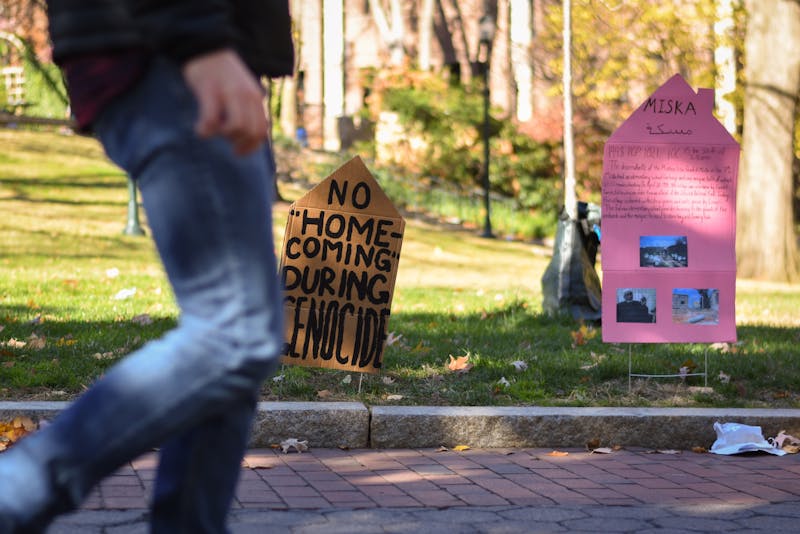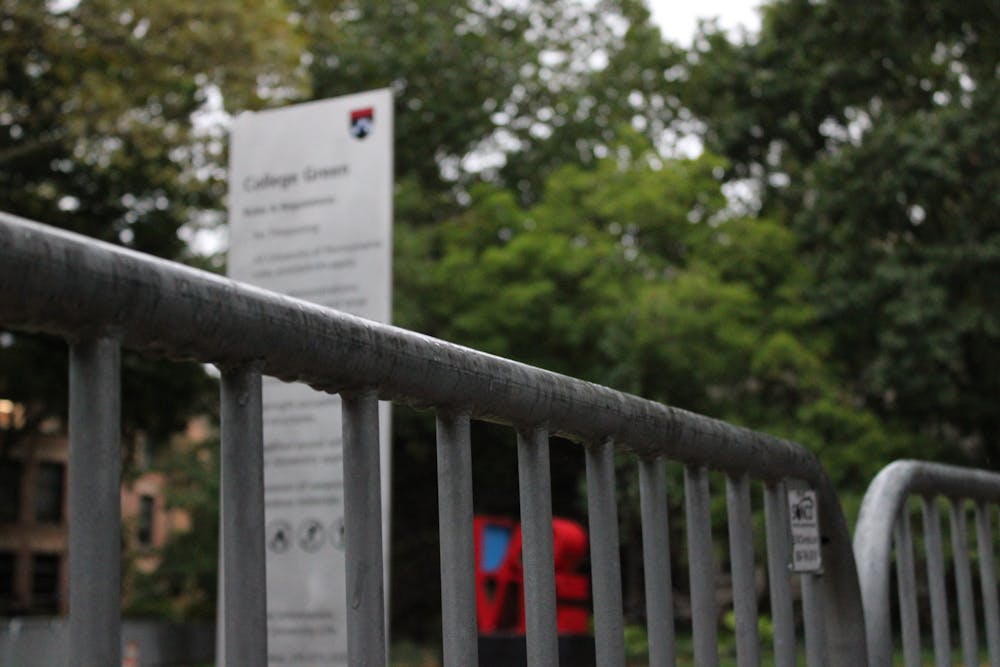
Every Friday morning, I lead tours of Penn’s campus for Penn Admissions. Nearly every time, I field questions from concerned parents about why College Green and other sites on campus are trapped behind gates. That particular question resonates with me because — like most students here — I don’t know the answer.
It’s truly puzzling why the University feels the need to block its students from fields around College Hall and the LOVE statue. Classes are still being held in College Hall and other buildings in its vicinity, but students don’t have access to the area around the building for most of the day.
A remnant of the Gaza Solidarity Encampment, College Green’s barricades are probably trying to prevent any form of protest from starting on that section of campus. This tactic, though, introduces a strong contradiction by the University. Their central argument against protest is that large-scale demonstrations can disrupt Penn’s operations, but their solution to prevent protest is to perpetuate disruption by leaving space off limits permanently? Let me be clear: I don’t believe the encampment was at all productive. It was an imposition to students and achieved very little for the cause it supposedly supported. However, as objectionable as the encampment was, we shouldn’t still have to live with its long-lasting effects.
When I arrived on campus on Aug. 16, fences blocking the entire area between 34th and Walnut streets to the LOVE sign were up, just as they were the day the encampment was cleared from College Green. I was immediately appalled. How could a protest that was dismantled in May still leave campus so excessively surveilled? This was just the beginning, though. When a demonstration was planned to form around the LOVE sign one morning in September, the area was fenced off for multiple weeks.
Last year, Penn ranked as the fourth-worst college for free speech on campus. After that ranking and a year of turmoil, our university released new Guidelines on Open Expression. These new regulations made it much more difficult for students to conduct many activities they previously could. Even an action as simple as tabling on Locust has found itself under scrutiny. These barriers in student life run parallel to fencing off spaces on campus. They’re both unnecessary and harmful to our community.
Nobody feels safer because of the barricades. They’re a physical obstacle and a symbolic one, too. The free exchange of ideas is a cornerstone of a successful campus and a collaborative learning environment. Our university will thrive when all students feel empowered. Penn succeeded in that mission when they argued that an encampment was harping on the general experience on campus. I respect the University’s initiative to limit impositions on their students, but I don’t align myself with their double standard.
If the University’s argument against protests is that it prevents students from using space, why would the remedy be to literally block students from using said space? Penn has a clear message: Protests are the problem. It’s more convenient for the University to alienate its students from social issues than to confront them. That is more than evident in our declaration of institutional neutrality. Although it’s generally not the University’s role to make politically charged declarations of any kind, it certainly isn’t their job to limit a student’s ability to spread a message either.
The fences we walk past every day are much more than just an eyesore. They’re a reminder that the University needs to control us. They represent an unwillingness to trust the student body or engage with dissent in any constructive way. It’s time for Penn to take down the barricades — both physical and metaphorical — and recommit to being a space where ideas can be freely exchanged.
JACK LAKIS is a College sophomore studying political science and communication from Kennesaw, Ga. His email is jlakis@sas.upenn.edu.
The Daily Pennsylvanian is an independent, student-run newspaper. Please consider making a donation to support the coverage that shapes the University. Your generosity ensures a future of strong journalism at Penn.
Donate




